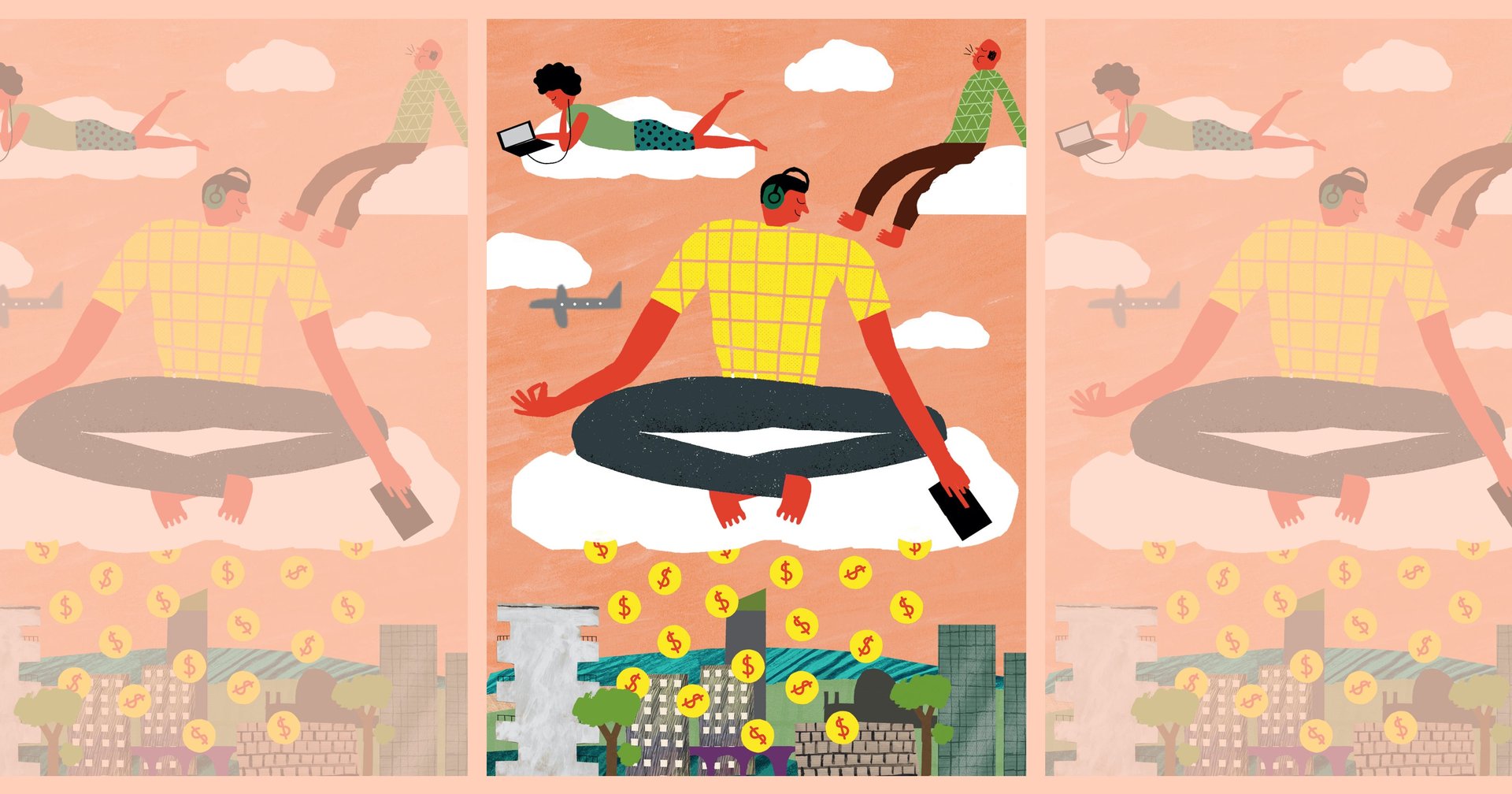Why there’s so much money in mindfulness
Mindfulness apps are booming as stressed-out people tune in for help coping with a turbulent world. Here’s the TLDR to our guide on the business of mindfulness..


💡 The Big Idea
Mindfulness apps are booming as stressed-out people tune in for help coping with a turbulent world. Here’s the TLDR to our guide on the business of mindfulness..
🤔Here’s Why
1️⃣ Meet the companies selling peace of mind.
2️⃣ They’re competing for new and existing subscribers with a bevy of content.
3️⃣ More workplaces are offering mindfulness as an employee benefit,
4️⃣ while automakers want your car to be your happy place.
5️⃣ There is money in mindfulness, but it could also make people, and the world, better.
✍ The details
1️⃣ Meet the companies selling peace of mind.
Though more than 2,500 meditation apps have launched since 2015, they’re all a little different, particularly in how they appeal to consumers. Some, like Calm, have star-studded content; others, like Headspace, say they’re all about health. Some are increasingly creeping beyond the specifics of meditation and becoming health or wellness brands. Headspace CEO CeCe Morken says the company’s main purpose is to help people to achieve better health; mindfulness is the “how.”
Either way, there’s a lot of money to be made in the mindfulness business these days. In the first 11 months of 2020, Calm brought in $99.4 million in revenue with a little over 28 million installs, according to estimates from Sensor Tower. Headspace, the second-biggest meditation app by revenue, generated an estimated $64.5 million on nearly 11 million installs.
2️⃣ They’re competing for new and existing subscribers with a bevy of content.
Morning and evening meditations; workouts and stretches; stories and music to help people fall asleep or to perform at work; soundscapes and celebrity-narrated bedtime stories; recent expansions into TV shows and books—if apps like Headspace and Calm want to justify their customers’ subscriptions while tapping into new markets and demographics, they have to keep coming up with new content, too.
There’s something ironic about racing to remain competitive with a product that is meant to be about slowing down. But there’s no question that’s happening—the two apps have been in what Calm co-founder Michael Acton Smith calls “mindful competition” with one another for nearly a decade.
3️⃣ More workplaces are offering mindfulness as an employee benefit.
In 2018, 52% of employers in the US offered some form of mindfulness training to workers. And though these apps really do help people feel better, there’s a risk that companies will rely on them as a way to anesthetize people to the stresses of work. Mindfulness training is no substitute for flexible hours or a realistic workload. That said, if companies offer mindfulness training as well as other robust forms of support for workers—as some such as Starbucks have started doing—there can be real benefits, perhaps helping employees become more comfortable in talking about their mental health and even improving their performance.
4️⃣ Automakers want your car to be your happy place.
Imagine your car as a sanctuary. Can you shed the noise and stresses associated with driving? What may sound like a far-fetched fantasy instead encapsulates the pursuit of many car companies today. Beyond comfort and safety, manufacturers are racing to find ways to improve the overall physical and mental health of drivers and passengers.
Lincoln is one company integrating mindfulness into its design. Kamal Curic, Lincoln’s design director, says newer models have features that are expressions of “quiet flight,” a principle the company adopted in 2014 as a counterpoint to the aggressive, performance-driven themes that have defined the automotive industry for decades. “We’re challenging the entire company to think in terms of four guiding pillars—beauty, ‘gliding,’ human, and crafted sanctuary,” he explains. The aspiration, Curic says, is to create an ultra relaxing, spa-like environment.
5️⃣ Mindfulness apps could make people, and the world, better.
Research has shown that meditation helps alleviate mental health issues such as depression and anxiety. And with its Buddhist roots, it also promises spiritual fulfillment to a growing population of secular Americans.
Could individual engagement with mindfulness meditation add up to a broader social impact? While some people will use it to further indulge their self-centered tendencies, others may leverage their thinking about the interconnectedness of all things into demanding social change.